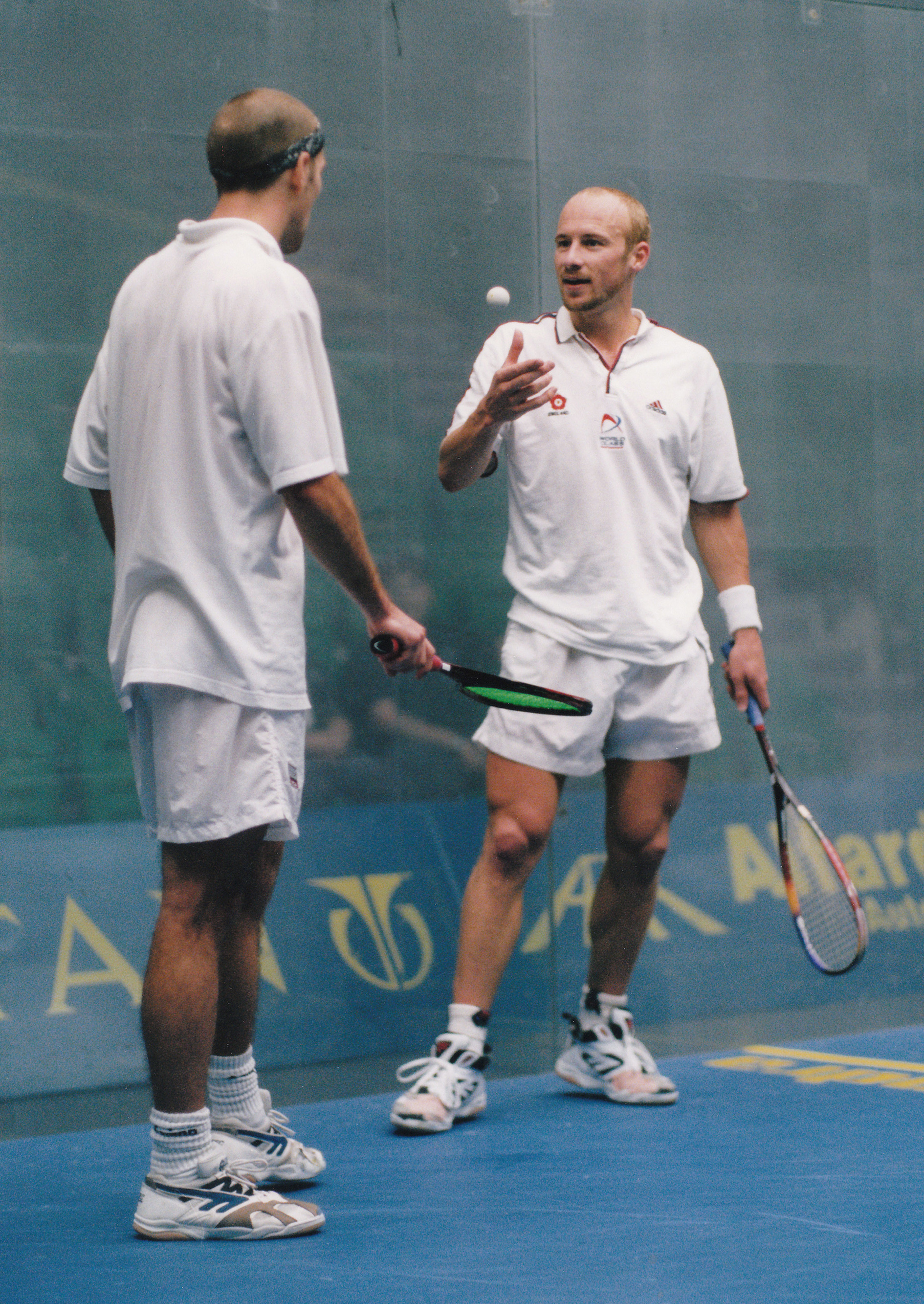By Rod Symington, WSF Referees and Rules Committee
Squash is a very complex game, and the infinite variety of possible situations and scenarios is a never-ending source of perplexity and questions. Answering those questions is a labor of Sisyphus: He’s the guy who was condemned to laboriously roll a heavy stone up the hill, only to see it roll down again—and he had to start over from the bottom. The punishment lasted for all eternity.
Squash players love to raise esoteric questions. About the ball, for instance. What can possibly happen that the ball is the subject of a question (or six)? Well, players look for any excuse for why they are losing a game (it’s never the player’s own fault), and the ball is a convenient target. The most common question concerns when the ball may be replaced.

The most obvious (and frequent) reason to replace the ball is if it is broken. Aha, but what if it is only split half way through? If both players agree that the ball should be replaced (under any circumstances), then it is replaced (after all, it is their game). If they cannot agree, the Referee (if there is one) decides. I once saw a player complain that the ball was out of round (he was losing, of course). The Referee declared the ball to be O.K. At the end of the game, the player took a pair of scissors out of his squash bag and cut the ball in two. “Now it is out of round,” he said. (And yes, the Referee should have penalized him—the ball must remain on court between games, and deliberately damaging the ball is a delay of game.)
If the ball breaks during a rally, then that rally is replayed. However, if the server is honest and notices that the ball is broken before starting the next rally, or if the receiver believes that the ball is broken, and one of them appeals before the serve is delivered, then the previous rally is replayed.
If you stop play during a rally to appeal that the ball is broken, and you are wrong, then you lose the rally. (Always wait to the end of a rally to appeal!)
This is where the Rule gets tricky—and you need to read what follows carefully. If the previous rally ended with a shot that looked a little strange (e.g., the mother of all drop shots where the ball hits the front wall and dives straight to the floor), the Rule permits the previous rally to be replayed, if the ball subsequently is found to be broken after being served. Usually, this will be left to the discretion of the Referee, who might say: “The last shot of the previous rally was rather strange, so I believe the ball was already broken then, and thus we are going to replay that rally.”
Note that this kind of decision may only be made if the ball breaks either as it is served, or as it hits the front wall after the serve—and the behavior of the ball on last shot of the previous rally was somewhat weird. If the receiver returns the ball and then it breaks, that is too late to consider replaying the previous rally.
If the ball breaks during the last rally of a game, a player must appeal before leaving the court. If that player returns to the court and then finds that the ball is broken, it is too late for an appeal. Walking off the court signifies that you accept that the game is over.
When a new ball is taken, the players are given time to warm it up to playing speed. How much time? It is up to both players to agree that the ball is warm enough, or it is left to the Referee’s discretion, whichever is sooner.
Finally, if you have the good fortune to be called upon to referee a match on a glass court in a PSA Tour event, then you will need to know their special Rule concerning the ball. Because the white or yellow ball can get dirty during matches, either player may request a new ball at the beginning of the third and/or fifth games.
Any other questions may be directed to symingto@uvic.ca.


